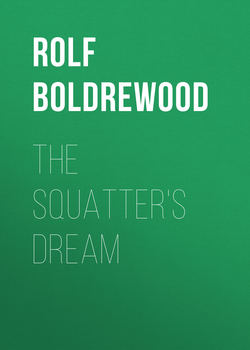Читать книгу The Squatter's Dream - Rolf Boldrewood, Rolf Boldrewood - Страница 8
CHAPTER VIII
Оглавление“The crackling embers glow,
And flakes of hideous smoke the skies defile.” —Crabbe.
“There is accommodation for more shearers than we shall need this year,” said M‘Nab, apologetically, “but it is as well to do the thing thoroughly. Next year I hope we shall have fifty thousand to shear, and if you go in for some back country I don’t see why there shouldn’t be a hundred thousand sheep on the board before you sell out. That will be a sale worth talking about. Meanwhile, there’s nothing like plenty of room in a shed. The wool will be all the better this year even for it.”
“I know it has cost a frightful lot of money,” said Jack, pensively, practising a gentle gallop on the smooth, pale-yellow, aromatic-scented floor. “I dare say it will be a pleasure to shear in it, and all that – but it’s spoiled a thousand pounds one way or the other.”
“What’s a thousand pounds?” said M‘Nab, with a sort of gaze that seemed as though he were piercing the mists of futurity, and seeing an unbroken procession of tens of thousands of improved merinos marching slowly and impressively on to the battens, ready to deliver three pounds and a-half of spout-washed wool at half-a-crown a pound. “When you come to add a penny or twopence a pound to a large clip, all the money you can spend in a wash-pen, or a shed, is repaid in a couple of years. Of course I mean when things are on a large scale.”
“Well, we’re spending money on a large scale,” said Jack. “I only hope the returns and profits will be in the same proportion.”
“Not a doubt of it,” said M‘Nab. “I must be off home to meet the fencers.”
The shed was locked up, and they drove home. As they alighted, three men were standing at the door of the store, apparently waiting for the “dole” – a pound of meat and a pannikin of flour, which is now found to be the reasonable minimum, given to every wayfarer by the dwellers in Riverina, wholly irrespective of caste, colour, indisposition to work, or otherwise, “as the case may be.”
Jack went into the house to prepare for dinner, while M‘Nab, looking absently at the men, took out a key and made towards the entrance to the store.
“Stop,” cried M‘Nab, “didn’t I see you three men on the road to-day, about four miles off? Which way have you come?”
“We’re from down the river,” said one of the fellows, a voluble, good-for-nothing, loafing impostor, a regular “coaster” and “up one side of the river and down the other” traveller, as the men say, asking for work, and praying, so long as food and shelter are afforded, that he may not get it. “We’ve been looking for work this weeks, and I’m sure, sliding into an impressive low-tragedy growl, the ’ardships men ’as to put up with in this country – a-travellin’ for work – no one can’t imagine.”
“I dare say not,” said M‘Nab; “it’s precious little you fellows know of hardships, fed at every station you come to, taking an easy day’s walk, and not obliged to work unless the employment thoroughly suits you. How far have you come to-day?”
There was a slight appearance of hesitation and reference to each other as the spokesman answered – “From Dickson’s, a station about fifteen miles distant.”
“You are telling me a lie,” said M‘Nab, wrathfully. “I saw you sitting down on your swags this morning at the crossing-place, five miles from here, and the hut-keeper on the other side of the river told me you had been there all night and had only just left.”
